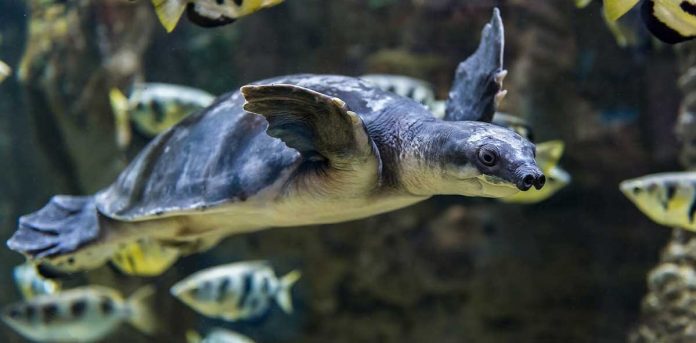The pig-nosed turtle is one of the most endangered species in the world. These turtles are found in Northern Territory and southern New Guinea. This pig-nosed turtle is also unique from many perspectives. This species is a freshwater turtle but it can only live in water which is unlikely for any other freshwater turtle. This turtle has paddle-like flippers and a snorkel-like “pig-nose”. This special nose helps the turtle to breath while it is submerged. It also lay eggs and hatch them only when they are exposed to the waters of the wet season.
This species of turtle is also the last surviving species of a type of tropical turtles named carettochelyids. Carettochelyids once lived in the northern hemisphere. In the beginning, scientists thought pig-nosed turtles arrived in Australia before a millennium, as scientists have never found any fossil of pig-nosed turtle in Australia.
But a 5-million-year-old fossil is going to change our perspective. A fossil has been found in Beaumaris which is 20km southeast of Melbourne. This fossil was found and kept in Melbourne Museum unidentified for 100 years until it is rediscovered by a team of scientists.
The researchers have identified the fossil as a small section of the front of a pig-nosed turtle. The research paper has been published in the journal Papers in Palaeontology. The rediscovered fossil was a portion of very diagnostic area of the turtle’s shell. The researchers were lucky in that.
This fossil has proved that carettochelyid turtles were there in Australia for millions of years. Researchers have asked the question that what these turtles were doing in Beaumaris 5 million years ago, which is too far away from its modern range?
Researchers think that one possible reason can be the weather in Melbourne was a lot warmer and wetter than today, which made it suitable for these turtles to live in a similar condition as in other tropical areas where they live now.

